

Tao Te Ching
Search Sages
Enter all or part of an sage's name or biography in the fields below, then press tab or enter to filter the list of Authors. Click the headings Name or Biography to sort by that column. Diacritics are ignored when searching.
Click on the author's name to go to their page.
| Author Name | Biography |
|---|---|
| A.A. Milne | 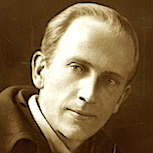 A.A. Milne A.A. MilneStudent of H. G. Wells, friend of authors J. M. Barrie and Arthur Conan Doyle, military propaganda writer during World War I and peace advocate afterwards; Milne resisted the selling out of authors for monetary gains saying he would rather write a telephone directory at his own inspiration than a Blank Verse Tragedy at others’ direction. Made famous after his death by Walt Disney productions, his Winnie the Pooh imagery - second only to Mickey Mouse - inspired $6 billion worth of products. His “children’s” books (especially Now We Are Six) open psychological doors into direct experience of nowness and appreciation of the sacred quality of simple, everyday perception. |
| Aacharya Haribhadra Suri | 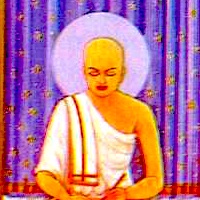 Aacharya Haribhadra Suri Aacharya Haribhadra Suri Apostle of many-sided view Philosopher, Jain leader, and prolific author of over 100 books including some of the most respected texts of the Jain tradition; Haribhadra promoted the ideal of anekāntavāda—epitomized by the parable of the blind men and elephant. He taught that whenever we take a partial, unconditional view of reality and won't accept contrary views, our reality becomes distorted. He respected and studied many traditions, promoted religious pluralism, and included the insights of other religions in his own teachings. He does conclude though that all the other traditions besides Jainism become confused by one-sided views. |
| Abaris Hyperboreios | 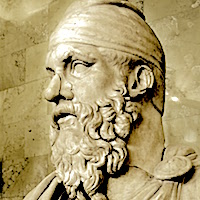 Abaris Hyperboreios Abaris HyperboreiosLegendary sage, Mongol shaman, and catalyst for the beginning of Western Civilization Abaris Hyperboreios, Skywalker βαρις Ὑπερβόρειος (c. 595 BCE) |
| Abbakka Chowta | 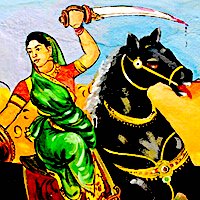 Abbakka Chowta Abbakka ChowtaFirst Indian, woman freedom fighter “The fearless queen,” Jain sage, warrior, and “first woman freedom fighter of India;” Abhaya Rani was one of the first to resist European colonial attacks. She skillfully fought against the Dutch and British as well as preventing the Portuguese from capturing Ullal several times. Along with fellow Jains, she included Hindus and Muslims in her administration, people from all sects and castes in her armies. Betrayed by an estranged husband, she was finally captured and imprisoned; but, she didn’t give up, broke out, and died fighting. More than 500 years now after her life, she is still revered and celebrated throughout India with stamps, statues, roads, ocean vessels, and festivals named after her. |
| Abdu’l-Bahá' | 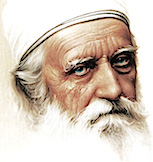 Abdu’l-Bahá' Abdu’l-Bahá'Left in poverty and exile at 8 years old when his father, Bahá'u'lláh (founder of the Bahá'í faith), was imprisoned and all his family’s possessions looted; Abdul Baha grew up in a Palestinian prison colony and after 40 years of imprisonment at age 64 was released giving him the opportunity to more effectively spread these teachings of social service, racial and gender equality, environmental protection and a universal unification of religion, politics, science and government. He was knighted by the British government for his humanitarian work during WWI and today Bahá'í has grown to over 8 million followers, become the world’s fastest growing religion during the last 100 years, the second-most geographically widespread religion after Christianity growing at least twice as fast as the population of almost every UN region. |
| Abdul Sattar Edhi | 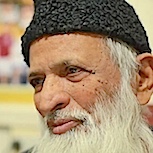 Abdul Sattar Edhi Abdul Sattar EdhiPakistan's "Father Teresa" Called the “Father Teresa” of Pakistan, “Angel of Mercy,” and “the world's greatest living humanitarian;” Abdul Sattar Edhi was a philanthropist and social activist who dedicated his life to helping the poor. National hero and one of Pakistan’s most respected people, he established the world’s largest ambulance service and his country’s largest welfare organization that has trained 40,000+ nurses, rescued 20,000+ abandoned babies, operates orphanages, clinics, shelters, rehab centers for drug addicts and the mentally ill, and works in Africa, eastern Europe, the middle East and even the USA. |
| Abigail Adams | 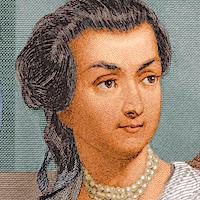 Abigail Adams Abigail Adams One of the most exceptional women in American history The first USA Second Lady and second First Lady, wife and advisor to president John Adams, mother of president John Quincy Adams, and one of the most exceptional women in American history; Abigail Adams became instrumental in the founding of the United States. A powerful influence for women’s rights, she emphasized the need for their education. A strong voice against slavery, she believed it was evil and a threat to democracy. Opposed to dogmatic, superstitious religious belief, she advocated for a heart-felt connection with a wisdom beyond words rather than a rote belief. Her accomplishments become more impressive when you consider the culture of her time when women’s roles were mainly domestic and educating women was considered foolish. Abigail never went to school but her self-education made her the most wise and influential in an extremely influential family. |
| Abraham Lincoln | 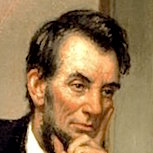 Abraham Lincoln Abraham LincolnGreatest American president, iconclast, skeptic, self-educated lawyer and congressman opposed to the Mexican–American War whose opposition to the expansion of slavery caused 7 slave states to form the Confederacy when he was elected president; Lincoln skillfully maneuvered between “War and Anti-War Democrats” who wanted to compromise with the South, “Radical Republicans” who wanted to harshly punish the South, fixated secessionists, and British interventionists. His oratory and common sense helped guide the USA through its biggest political and moral crisis while abolishing slavery, preserving the Union, and modernizing the economy. Using the army to protect escaped slaves, he closely supervised the war and planned a compassionate rebuilding of the South until his assassination. |
| Abu Yazid al-Bisṭāmī | 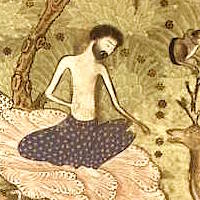 Abu Yazid al-Bisṭāmī Abu Yazid al-BisṭāmīFamous Sufi, ”King of the Gnostics,” forefather of ecstatic Islamic mysticism; Abu Yazid disavowed excessive asceticism and changed the course of Sufism by shifting the emphasis from discipline, obedience and piety to direct experience and “self-annihilation in the Divine Presence.” An active shrine to him in Bangladesh was built and has been used since 850 CE and he remains an important lineage holder in thelargest Sufi brotherhood, the Naqshbandi. |
| Aciṅta | 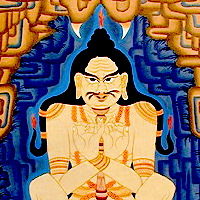 Aciṅta AciṅtaMahasiddha #38
|
| Adam Kirsch |  Adam Kirsch Adam KirschA poet, literary critic, and professor; Kirsch wrote—and continues to write—many books, articles and reviews. His articles quickly go beyond cliché and challenge second and third thoughts about status quo opinion. His numerous and insightful New Yorker articles quickly come up with online searches. |
| Adam Smith | 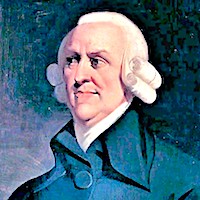 Adam Smith Adam Smith''The Father of Economic Capitalism" Economic pioneer, moral philosopher, professor, and major influence on the Scottish Enlightenment; Adam Smith helped create the "cult of the free market" when he published The Wealth of Nations—one of the or the most influential books on economic theory ever written. Unlike many famous and influential books that were virtually unknown during the author's life, the Wealth of Nations went through 5 editions while Smith was still living. A close friend and advisor to David Hume, Smith also had frequent conversations with Benjamin Franklin, Gibbon, Burke, and knew Voltaire. He put his economic theories into practice converting his home town of Glasgow's business leaders to his policy of free trade. Kidnapped by gypsies when young, Smith refused the expected ordination after 6 years studying at Oxford, and turned conventional morality upside down by proclaiming being rich as the same thing as having integrity. |
| Adi Shankara | 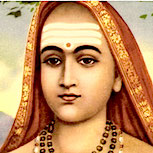 Adi Shankara Adi ShankaraPhilosopher, theologian, and sage; Shankara unified and established the main philosophical trends in Hinduism. He criticized the dogmatic and ritually oriented schools, emphasized that enlightenment can be realized in this lifetime, and established monastic, personal-practice and direct-experience traditions. Writer of fundamental texts of the Vedanta school and responsible for a major Hindu revival, he is called the source of all the main currents of modern Indian thought. His teachings are similar to Mahayana Buddhism and he was called a "crypto-Buddhist" but he explained the difference being the Buddhism teaching of no self and his that the whole universe is the self - which may be a way of saying the same thing. |
| Adlai Stevenson | 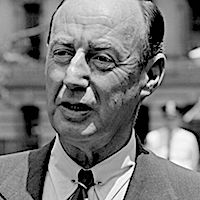 Adlai Stevenson Adlai Stevenson |
| Adolf Hitler | 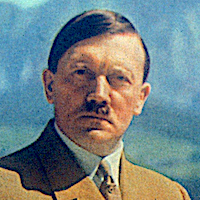 Adolf Hitler Adolf Hitlerthe most immoral and cruel conqueror in human history German dictator for 12 years and instigator of both the Holocaust and World War II (the deadliest conflict in all of human history); Hitler rose to power by promoting anti-semitism, German pan-nationalism, and anti-communism. His impassioned and charismatic speeches served Nazi propaganda well hypnotizing followers into unthinking true believers. His racially motivated policies led to the killing of c. 19.3 million civilians and prisoners of war, the genocide of 6 million Jews and millions of others considered "socially undesirable." His regime is almost universally associated with the word evil, he as the most immoral and cruel conqueror in human history. |
| Aeneas | 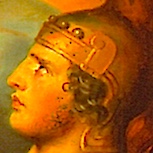 Aeneas AeneasPersonification of the hero myth Hero of fallen Troy, first Roman hero, ancestor of legendary founders of Rome, Romulus and Remus, described as a progenitor of Julius and Augustus Caesar, claimed as an ancestor of the British Kings including King Arthur, symbol of piety, loyalty and family values; Aeneas has a long story in myth, legend, and possibly history. Immortalized by Homer, Virgil, literature from ancient to modern times, famous operas, film and video games; he is used as an example of individuation and the hero myth in Jungian psychology. |
| Aeschylus | 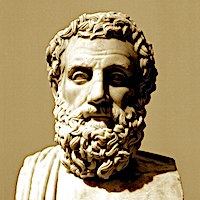 Aeschylus AeschylusThe Father of Tragedy Although Aeschylus was the first to present plays as trilogies, the initiator of many theatrical innovations, and the “father of tragedy;” his Greek epitaph didn’t mention his plays, only his military roles. Although not fully acknowledged in ancient Greece, his influence has seeped through history and into the present as an inspiration for Wagner, Milton, the Romantics, Eugene O’Neill, and Robert F. Kennedy who claimed him as his favorite poet who he quoted in a speech to African Americans after Martin Luther King’s assassination. This same quote—“to tame the savageness of man and make gentle the life of this world”— became inscribed on Kennedy’s memorial after his own assassination. Aeschylus’ costumes and performances were so vivid that they were said to cause children to faint, men to urinate in their robes, and pregnant women to go into labo |
| Aesop | 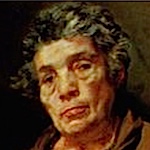 Aesop AesopHero of the oppressed and downtrodden Known as a strikingly ugly slave who by his cleverness became free and an adviser to kings and city-states, some historians believe Aesop was a black from Ethiopia and became Uncle Remus in the Cherokee, Algonquin and American slave tradition of Br'er Rabbit. In many cultures he symbolizes a hero of the oppressed, disadvantaged and downtrodden who with wisdom and understanding outsmarts and wins over the rich and powerful. Famous throughout the world - from China to Africa, from Europe to Japan, from ancient times until today; Aesop’s fables and sayings remain a profound influence of goodness and insight. |
| Agostino Steuco | 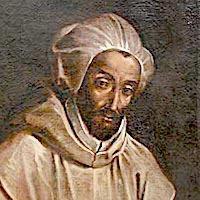 Agostino Steuco Agostino SteucoAuthor of the first book on the Perennial Philosophy |
| Agrippa | 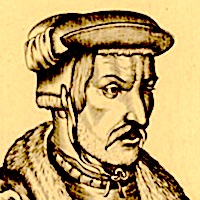 Agrippa AgrippaHistorian of the occult and early, important influence on science Physician, soldier, polymath, theologian, and the most important magic occultist of his age; Agrippa pushed hard on the ideological and religious belief boundaries of his time and, as a consequence, found himself at odds with inquisitors, banished, imprisoned, and continually threatened. His books shifted historical trends. One attacking the contemporary state of science influenced writers like Goethe, Montaigne, and Descartes. A book he wrote in 1529 argued for the moral and spiritual superiority of women and his 3-volume Occult Philosophy (printed 1531-1533) became a foundational resource for Occultists then and now. In Mary Shelley's famous novel, his writing are described as a major influence on the young Victor Frankenstein and he's similarly cited in works by Christopher Marlowe, Søren Kierkegaard, and J. K. Rowling. |